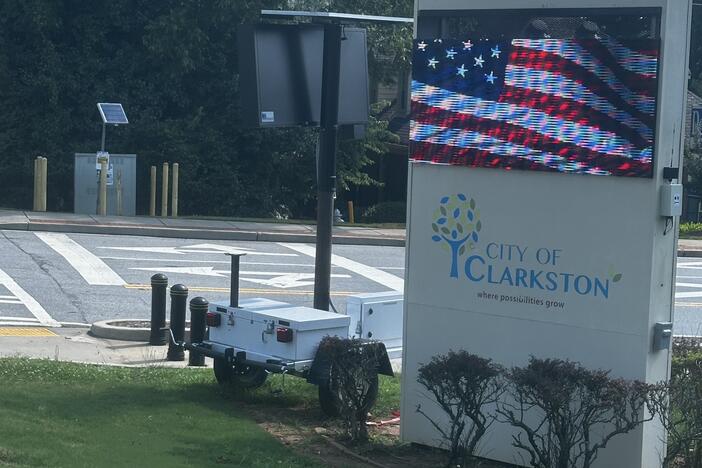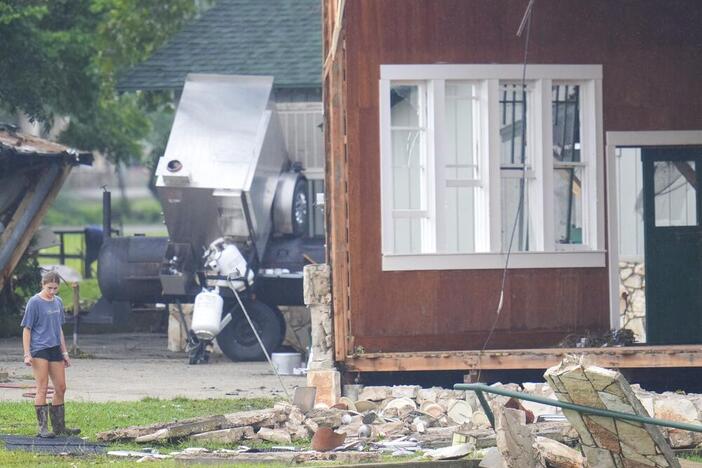
Section Branding
Header Content
Ten Thousand Souths: Preserving Southern Folklore
Primary Content
Since a half-century ago, colleges and universities around the South have established centers to study the culture of our region. The Center for Appalachian Studies in Kentucky. The Center for the Study of the American South in North Carolina. The Center for the Study of Southern Culture in Mississippi. Salvation South magazine editor Chuck Reece has some thoughts about why preserving Southern folklore matters.

TRANSCRIPT:
Chuck Reece: Later in this decade, we will celebrate the golden anniversary of an institution that has done much good work to help us understand the culture of the South.
In 1977, down in Oxford, Mississippi, the University of Mississippi opened its Center for the Study of Southern Culture. Their goal was to document the people of this region and their culture—their literature, their food, their music, their economic situations, their stories.
Their folklore.
Webster’s Unabridged Dictionary offers two definitions of “folklore.” My favorite one reads like this:
Folklore is a comparative science that investigates the life and spirit of a people or of peoples as revealed in their traditional customs and tales.
The first director of the Center for the Study of Southern Culture in Mississippi was Bill Ferris, and I have had the pleasure of getting to know him over the last decade. Bill grew up on a farm outside Vicksburg, Mississippi, and he was always fascinated by the Black culture that surrounded him—the storytellers and the musicians, the blues players who made the Saturday night music and the church choirs that made the Sunday morning music. When he was a teenager, he was dragging around a Super 8 film camera and a reel-to-reel tape deck, recording music and stories.
I’ve been doing a series of interviews with Bill lately about four documentary films that he released in the mid-seventies, before he returned to Mississippi to open that Center. Even though he is in his eighties now, his excitement about collecting the folklore of the South is infectious—and he’s so hopeful about what young people in our region will collect in the future.
Why? Because unlike people of his own generation, they don’t have to drag around a carload of equipment. They have everything they need to be folklorists right in their pockets, Bill says.
Bill Ferris: Technology has made every man a potential filmmaker and documenter of his or her world. And so I tell my students, you have no excuse. Start with your grandparents. We often neglect those worlds that are our own, thinking that they couldn’t be as important as someone down the street.
We are the stories we tell.
Chuck Reece: People like Bill Ferris figured out a long time ago that anybody who paints the South with a broad brush, claiming that all Southerners do this or believe that, is just wrong. People like Bill know there is not—and never has been—one South. There are ten thousand Souths.
Your own story of your own life as a Southerner is one of those. Don’t be afraid to tell it. After all, you have the equipment you need, right there in your pocket.
If you’re interested in telling your Southern story, you ought to get in touch with us at Salvation South dot com. We’ll see what we can do to help you out.
Salvation South editor Chuck Reece comments on Southern culture and values in a weekly segment that airs Wednesdays during Morning Edition and All Things Considered on GPB Radio. Salvation South Deluxe is a series of longer Salvation South episodes which tell deeper stories of the Southern experience through the unique voices that live it. You can also find them here at GPB.org/Salvation-South and wherever you get your podcasts.
Since a half-century ago, colleges and universities around the South have established centers to study the culture of our region. The Center for Appalachian Studies in Kentucky. The Center for the Study of the American South in North Carolina. The Center for the Study of Southern Culture in Mississippi. Salvation South magazine editor Chuck Reece has some thoughts about why preserving Southern folklore matters.






